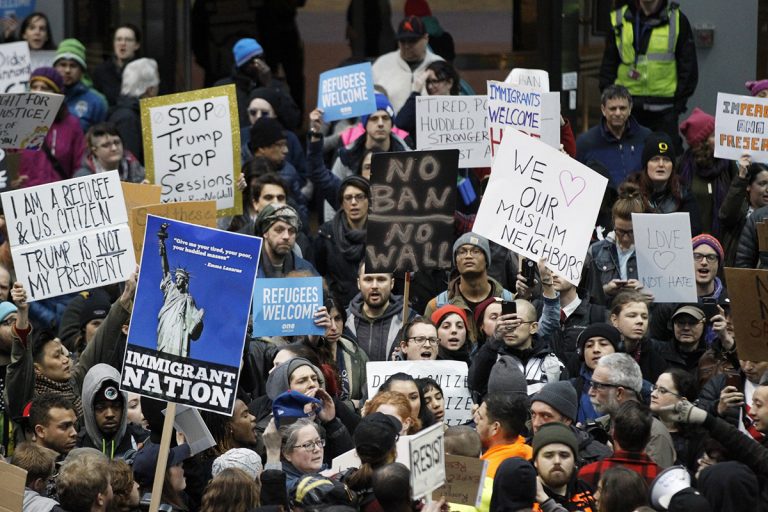
The US administration’s revised travel ban signed by President Donald Trump last Monday will likely pose adverse impacts on the country’s higher education sector, The PIE News reports.
The updated ban excludes Iraq from the earlier order’s 90-day travel restriction for citizens of seven Muslim-majority countries, leaving only Iran, Libya, Somalia, Sudan, Syria and Yemen.
Popularly known as #MuslimBan, the order had also suspended the US refugee programme for 120 days. However, unlike the older version of the order, Syrian refugees will not be placed on an indefinite ban.
Another notable change is that citizens from impacted countries holding valid visas, permanent residency or dual citizenship in the US, will be able to enter sans any constraint. Those with visas due to expire will have to reapply.
BREAKING: Trump Signs New Travel Ban https://t.co/WLJL3jwqEg
— AASCU (@AASCU) March 6, 2017
“Nothing in this executive order affects current lawful permanent residents or persons with current authorisation to enter our country,” Secretary of Homeland Security John Kelly said in a statement.
These new developments do little to placate the country’s higher education sector, who has been on edge since the first order was signed on Jan 27.
Although said to be an “improvement” to the earlier ban, “the executive order remains overly broad in scope and threatens to adversely impact higher education in America”, the American Association of State Colleges and Universities said in a statement.
While the group respects Trump’s wish to secure the country, they believe such a “categorical ban” based on national origins “will undermine the ability of our public institutions to attract the best minds to teach and study at our state colleges and universities”.
In addition, future changes to the Optional Training Programs and H-1B visas may vex the problem further.
Rahul Choudaha, co-founder of interEDGE – a US-based provider of support services for international students – warned the overall effect of these reforms could prove “unnerving” for many overseas students.
AIEA releases statement on today's (3/6/17) U.S. Executive Order on immigration. https://t.co/fYcX50QJTi #intled pic.twitter.com/4oolVz6s1B
— AIEA (@AIEAWorld) March 6, 2017
Though the order has been “improved” with more details, such small print may be glossed over.
Ultimately, the message sent to the world is negative, with international students increasingly turning away from the US.
“Students and families don’t break down the particulars. They hear of people being banned,” George Burke, University of Albany‘s international admissions and recruitment specialist told The PIE News. “Given the admissions timelines, the damage has been done.”
“Aside from the substance of the move – barring entry to students and scholars from the countries named – the message sent to the rest of the world could hardly be more negative,” said Eddie West, director of international programmes at University of California, Berkeley Extension.
In the midst of all these, the Association for International Education Administrators made a call to arms for educators to stand in “full solidarity” with all affected by the new orders, as it was their duty to protect the global flow of knowledge and people.
“This is a critical moment for international education.”
Liked this? Then you’ll love these…
U.S. university lends hand to international students affected by #MuslimBan
In response to #MuslimBan, Jewish university declares itself a ‘Sanctuary Campus’







